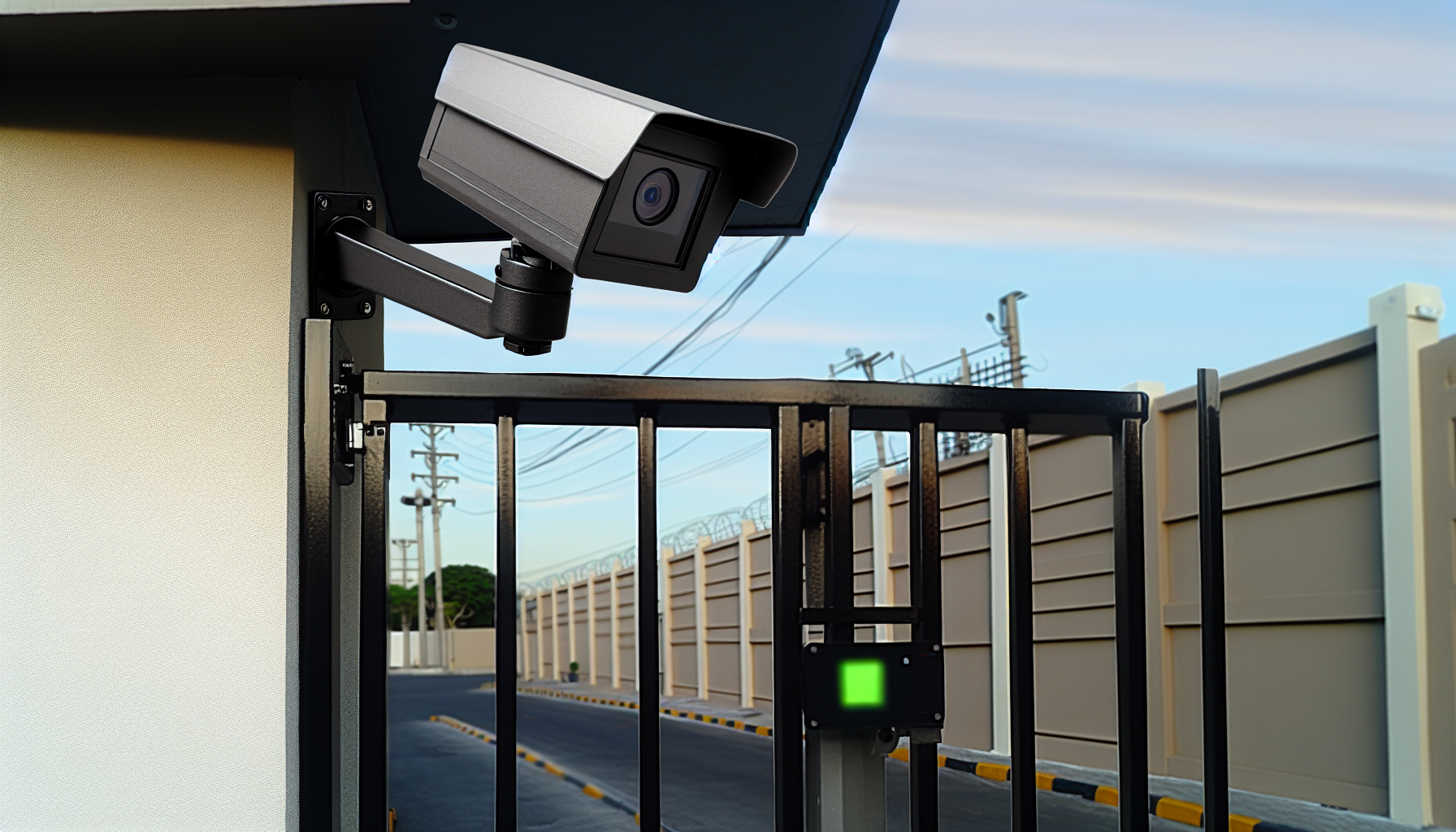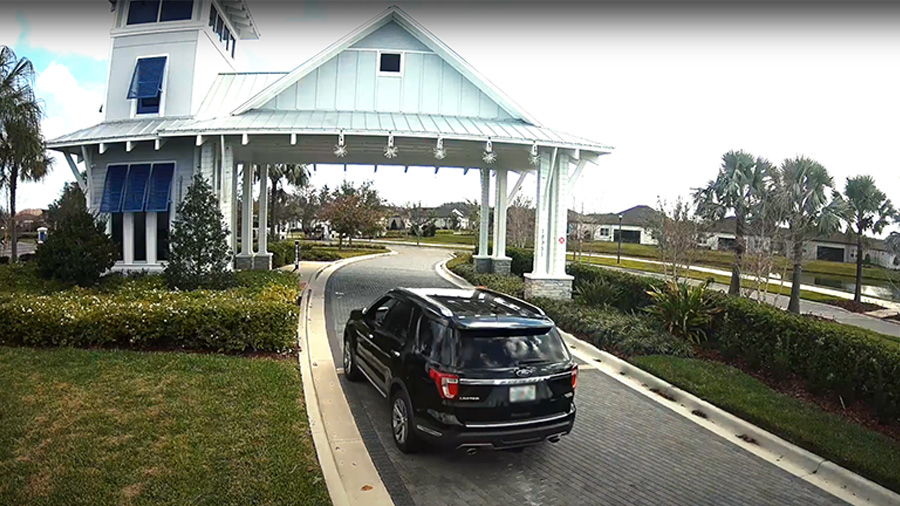Considering Virtual Guard Louisiana services for your security needs? Learn how these remote surveillance systems, leveraging advanced technology like license plate recognition, can protect your property while cutting costs. Get insights into the practical applications for residential and commercial properties, and see how they stack up against traditional security measures without spoiling the full detail to come in our comprehensive guide.
Key Takeaways
- Virtual guard services in Louisiana enhance security through remote monitoring, access control, and advanced features like license plate recognition, which contribute to safety and efficiency while being regulated by the Louisiana State Board of Private Security Examiners.
- License Plate Recognition Technology is a key component of virtual guard services, automating vehicle identification and access control with high accuracy, thus strengthening security in residential and commercial areas.
- Implementing virtual guard services can lead to significant cost savings and increased ROI for communities in Louisiana, as they are cost-effective compared to traditional manned security and can potentially raise property values by enhancing security and reducing crime rates.
Virtual Guard Services in Louisiana
Pioneering the security solutions in Louisiana are the virtual guard services such as Virtual Video Monitor Louisiana and Video Surveillance Monitoring Louisiana. The operation of these services is based on the installation of cameras for live-streaming surveillance across properties. Features like managed access control and license plate recognition not only monitor but also securely transmit video to a central station, thereby allowing entry to authorized individuals. Regulated by the Louisiana State Board of Private Security Examiners, these services contribute to enhanced security through remote monitoring, control of property access, supervision of resident and guest entry points, and prompt response to any suspicious activity.
Types of Virtual Guards
Virtual guard services in Louisiana offer comprehensive security solutions. They employ highly skilled surveillance experts who utilize technology to protect properties. These services include:
- Remote security agents connecting through the internet
- All-in-one surveillance systems with audio and visual deterrence
- Virtual guard video monitoring for crime prevention
One notable type of virtual guard service is remote gate attendants, who integrate access control, video surveillance, audio intercom, and other technologies at remote sites. Trained and supervised guards are able to grant access and monitor secure areas remotely, even during the overnight shift.
Another innovative feature is the license plate recognition system, a technological solution that employs optical character recognition to acquire images of vehicle license plates and convert them into alphanumeric characters, bolstering security measures.
Benefits for Gated Communities
Gated communities reap numerous benefits from virtual guards, including:
- Cost-effectiveness
- Effective access management
- Heightened vigilance
- Decreased unauthorized entry and shortcut traffic
- Round-the-clock surveillance
- Simplified visitor authentication procedures
By remotely overseeing essential facilities, virtual guards discourage criminal activities, thereby instilling a heightened sense of security among residents.
Furthermore, virtual guards significantly contribute to cost reduction by offering a more affordable alternative to manned gate security. This results in:
- Savings on labor costs
- Reduction in false alarms
- Improved monitoring capabilities
- Scalability
The continuous monitoring ensures safety even during night time, which in turn can contribute to the increase of property values, making these communities more attractive to prospective buyers or tenants.
License Plate Recognition Technology

One of the innovative features of virtual guard services is the License Plate Recognition Technology. Also known as Automatic Number Plate Recognition (ANPR) or ALPR, this sophisticated system is used for vehicle management operations. It automatically captures images of vehicle license plates and transforms those images into alphanumeric characters using optical character recognition.
The operational process of this technology involves capturing photographic video or images of license plates and subsequently utilizing advanced algorithms to accurately extract the license plate number for processing. It requires hardware such as cameras to capture high-quality images of license plates and software capable of processing these images and converting the data into an alphanumeric format for effective functionality.
This technology provides various security advantages including:
- Enhancement of security through the detection and prevention of unauthorized vehicle entry
- Real-time tracking of vehicle movement
- Provision of valuable data for investigations
- Assistance to law enforcement in identifying stolen vehicles and locating suspects
- Improvement of access control and overall safety
How it Works
License Plate Recognition technology operates by:
- Capturing images or video of license plates
- Employing algorithms to extract the license plate number
- Converting the optical data into digital format for comparison against a database in order to identify the vehicle.
Artificial Intelligence (AI) plays a crucial role in this technology through the utilization of advanced image processing and machine learning algorithms to precisely extract and interpret the characters on a license plate, even from images or videos. The system necessitates cameras that are specifically designed to capture legible images of license plates and dedicated computer software to process and analyze the images.
License Plate Recognition technology is known for its high level of accuracy, often achieving rates close to 100%. However, its performance can be influenced by factors such as low license plate image quality or the existence of non-standard license plates, which may affect the retrieval of accurate license plate information.
Applications in Gated Communities
In gated communities, License Plate Recognition Technology plays a significant role in access control by:
- Establishing a license whitelist for registered vehicles
- Ensuring that only authorized vehicles are able to enter
- Effectively improving the overall security of the community.
This technology is also employed in the management of visitors within gated communities by:
- Promptly reading license plate numbers in real-time, thereby ensuring efficient and precise authorization
- Streamlining entry processes and effectively confirming the entry of authorized visitors at gated community entrances
- Verifying the entry of authorized vehicles
- Improving the overall security of the community
- Monitoring suspicious vehicles in real-time
- Notifying security personnel
Envera’s Virtual Gate Guard serves as an instance of a gated community in Louisiana employing License Plate Recognition Technology for security purposes. Residents and regular guests of the gated community or building have the ability to establish a guest list for registering authorized vehicles on the premises through their license plates.
Implementing a Virtual Guard System in Louisiana
Several pivotal steps are involved in the implementation of a virtual guard system in Louisiana. Top-rated virtual guard service providers in the state include Virtual Guard and Pinnacle Security. When evaluating these providers, it is important to consider factors such as the technology they utilize, their access control capabilities, their experience in delivering security services, and their capacity to handle emergency situations.
In the decision-making process of selecting a virtual guard system, gated communities in Louisiana need to consider various factors such as:
- Security requirements of the community
- The access points requiring security
- Scalability of the system
- Budget constraints
- Maintenance needs
A virtual guard system can be incorporated into the existing security infrastructure, including virtual gate guards and visitor access control systems, providing homeowners with the ability to remotely manage and monitor entry points.
Choosing a Service Provider
In the process of choosing a virtual guard service provider in Louisiana, essential factors like industry experience, advanced technology and tools, and property requirements should be taken into account.
The technology utilized by a virtual guard service provider should include cameras, sensors, motion sensing, heat sensing, lidar, and radar capabilities for remote monitoring and protection.
Integration with Existing Security
Integrating a virtual guard system with existing security measures may involve potential obstacles, including:
- The lack of interoperability between different security tools
- The necessity to address strengths and vulnerabilities of current security protocols
- Ensuring seamless integration with other security systems
- Managing labor shortages
- Preventing interference with critical operations
Virtual guard services can be customized to integrate with an existing security setup by offering continuous digital surveillance and seamlessly integrating with electronic gate systems, thereby ensuring that the new security enhancements align with established protocols. The service provider’s role is significant in the integration of a virtual guard system, as they provide affordable 24/7 digital monitoring solutions and incorporate the system into existing visitor access control systems, facilitating remote management and monitoring of entry points and aligning with the property’s current security practices.
Case Studies: Virtual Guard Success Stories in Louisiana

Several case studies can testify to the effectiveness of virtual guard services in Louisiana communities. These services have proven to be effective in addressing security risks and offering communities a cost-effective alternative to traditional security measures, featuring modern real-time monitoring and response capabilities. Predominantly, the feedback from residents and businesses has been positive, as they express satisfaction and peace of mind regarding the excellent services delivered by Virtual Guard.
One notable example includes the successful implementation of virtual guard services in residential gated communities in Louisiana, where systems like Virtual Gate Attendants and the MyEnvera web portal and app have been utilized. These showcase cutting-edge surveillance and monitoring solutions that add substantial value to these communities.
On the commercial side, Virtual Guard’s case study on camera monitoring serves as a prime example of effective security operations. Furthermore, eCamSecure’s ebook demonstrates the practical application of the Virtual Guard Platform in diverse industries, underscoring how virtual guards enhance security, even in demanding environments.
Residential Gated Communities
In residential gated communities, virtual guards enhance safety by:
- Conducting remote monitoring of community access gates, clubhouses, pools, and other facilities, leading to improved security
- Maintaining continuous surveillance and monitoring, thereby deterring potential criminals
- Remotely overseeing essential facilities, discouraging criminal activities
- Instilling a heightened sense of security among residents
Additionally, virtual guards aid in crime reduction and contribute to a safer living environment.
Virtual guards also aid in fostering a sense of community by remotely managing access to properties, thereby improving security, privacy, and promoting interaction among residents. Both Virtual Guard and Envera Systems are exemplary instances of virtual guard services that have been successfully implemented in residential gated communities in Louisiana. These services enable simultaneous monitoring of multiple areas and ensure that unauthorized individuals are challenged at the gates of the community, thus enhancing the security of the residents.
Commercial Properties
Commercial properties have observed various enhancements, including cost-effectiveness due to the lower expense of virtual guards compared to traditional physical guards. Additionally, virtual guards can monitor multiple areas simultaneously, leading to improved coverage and overall safety.
Virtual guard services offer several benefits, including:
- Optimized access control through the use of advanced technology such as AI and real-time monitoring
- Remote management of access credentials
- Improved surveillance over multiple entry points
- Immediate alerts in case of any unauthorized access attempts
- Cost reductions of up to 70% compared to traditional security guards
- Substantial decrease in overall security expenditures
Virtual guard services have had a positive impact on business operations by enhancing security, improving cost-efficiency, and providing businesses and property owners with greater peace of mind.
Cost Savings and ROI of Virtual Guard Services
Significant cost savings and return on investment (ROI) are offered by investing in virtual guard services. The average cost of hiring physical security guards in Louisiana can vary from $22 to over $100 per hour. Conversely, Virtual Guard Services can provide similar levels of security at a significantly reduced cost.
Compared to traditional security guard expenses, the use of Virtual Guard Services can potentially lead to cost savings of up to 70% for gated communities in Louisiana. The incorporation of Virtual Guard Services can elevate property value through:
- Enhancing security coverage
- Offering tailored security solutions
- Generating substantial cost savings that would otherwise be utilized for conventional security guard services
Indeed, research studies, such as the one conducted by Vivint, suggest that properties with security enhancements, including virtual guard services, typically command higher selling prices.
Additionally, the Urban Land Institute’s findings revealed that apartment complexes with security amenities, such as virtual guards, saw revenue growth of up to 7%.
Reduced Security Guard Expenses
Given that virtual guard services are typically more cost-effective than traditional security guards, transitioning to virtual systems becomes a financially wise decision.
The enduring financial advantages of virtual guard services include:
- Decreased labor costs by utilizing remote monitoring systems
- Reduced necessity for travel time and expenses associated with on-site security personnel
- Enhanced efficiency
- Reduced maintenance expenses
These advantages establish virtual guard services as a financially prudent solution in comparison to conventional security guards over time.
The average cost of a security guard in Louisiana is $13.09 per hour. However, depending on specific requirements, these costs can vary from $22 to over $100 per hour.
Improved Property Value
A negative correlation between property values and crime rates in Louisiana is indicated by research findings. Specifically, a one-standard-deviation rise in property crime has been associated with a 10% decline in property values. Moreover, a 1% increase in crime rates may result in a 1.5% decrease in house prices.
A virtual guard system contributes to the perceived property value by offering advanced security coverage, leading to a safer living or working environment. Additionally, these systems provide cost-efficient alternatives to traditional surveillance, making the properties more appealing to potential buyers and tenants.
Summary
This blog post has provided a comprehensive overview of virtual guard services in Louisiana, highlighting their benefits for both residential gated communities and commercial properties. From enhanced security through license plate recognition technology and improved access control, to significant cost savings and increased property values, virtual guard services present a smart investment for safety and peace of mind. With the successful implementation of these services across the state, the future of security in Louisiana is promising, offering a secure living and working environment for all.






